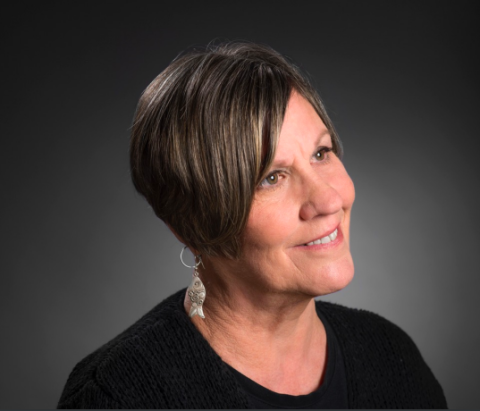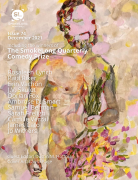In “A Brief Natural History of the Automobile,” a large amount of time is covered—marked in part by different models of vehicles and the men driving or riding in them—and it spans roughly the length of the speaker’s active sex life. In the beginning she is a teen who wants to “do it” and toward the end her husband is “doing it” with someone else. How did you come to this as a structure?
By driving the long way home—the really long way. Not long ago I needed something—anything!—to workshop for a class I was taking with Sara Lippmann, so I ended up digging through some really old files I’d stored on an ancient thumb drive. I found a version of this story that I’d evidently sent out during pre-digital days as it was formatted for snail-mail submission; the address and phone number were more than twenty years old!
During those twenty years, I took a deep dive into poetry and metaphor, which gave me a starting point for revision. I began by boosting the car-as-sex imagery and when I trimmed away what wasn’t necessary, the arc was there, as was a path that led to a new ending. So it took twenty-some years and a lot of backroads to get here, but I’m happy where it ended up, and really happy the old version was never published.
The speaker in this story is voted most likely to succeed, so, she’s intellectual or perceived to be, yet she also sleeps with a man who she has no shared language with, so it’s just a purely physical interaction. Why are you interested in this kind of tension?
The French-Canadian hockey player, yeah. I understand the “Most Likely to Succeed” thing to be quintessential high school, a time of conformity and categories and the odd comfort of moving through that particular acre of life circumscribed by boundaries. The time after high school—college and later—can be like a foreign country. No one knows your family or remembers that you peed the floor in first grade, so you’re free to test and/or push past the old boundaries. Viewed this way, the French-Canadian hockey player is a kind of success for her. She’s pushing back against expectations by defying the status quo, and it becomes something she reaches back to by story’s end.
Also, a point of craft: If you’re writing a very short story, the tension arising from conflict needs to be archetypal enough for the reader to fill in what the story can only sketch out, hint at. And sexual tension is very archetypal.
The ending, which is really lovely, feels like it is starting to take a turn toward the fantastic in the line of “not away anymore, but toward something you sense is there.” Can you share more of what is awakening in the character?
In a previous version of the story, her car dies in front of several automobile dealerships and she’s seduced into test-driving some sleek, Italian shoe of a car by a smooth-talking salesguy—an ending that left her pretty much back where she started: both man and car-dependent. And I have to tell you that re-reading the ending after so many years away felt false and even cynical, the suggestion that she’d be stuck in that same spin cycle with no hope of redemption. After so many years in a car, she’s forced to get out and walk and it’s okay. She’s—quite literally—standing on her own two feet at the end, free to go in any direction she pleases. There’s a saying that if you walk toward the light, the shadows will be behind you and I think that’s what she’s sensing, the possibilities.
Do you personally have a particular relationship to cars?
I was born and raised in Michigan during a time when the economy of the state was entirely reliant on automobiles, so, yeah, most definitely. I recently bought a new used car (“pre-enjoyed,” according to the dealer) because it has a manual transmission. I believe that writers of prose should read poetry and that everyone should learn to drive a stick shift. And that the only true music to dance to is Motown.



 The core workshop of SmokeLong Fitness is all in writing, so you can take part from anywhere at anytime. We are excited about creating a supportive, consistent and structured environment for flash writers to work on their craft in a community. We are thrilled and proud to say that our workshop participants have won, placed, or been listed in every major flash competition. Community works.
The core workshop of SmokeLong Fitness is all in writing, so you can take part from anywhere at anytime. We are excited about creating a supportive, consistent and structured environment for flash writers to work on their craft in a community. We are thrilled and proud to say that our workshop participants have won, placed, or been listed in every major flash competition. Community works.